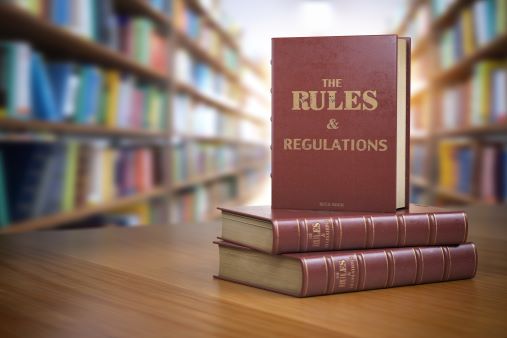Welcome to the February 2016 edition of the Commercial Litigation Update, an e-publication that features articles authored by the attorneys in Barnes & Thornburg LLP's Commercial Litigation Practice Group. To read an article from this month's edition of the Commercial Litigation Update e-newsletter, click on the hyperlinks in the article titles below.
If you are not currently on our mailing list and would like to receive issues of the e-newsletter directly via e-mail, visit our subscription page to sign up.
Force Majeure Clause Can't Save a Company from its Own Bad Deal
By Kara Cleary
With increased severe weather events and acts of terrorism, force majeure clauses have garnered more attention and importance during contract negotiations. However, these clauses have limitations. Read about how the recent decision in Kyocera Corporation v. Hemlock Semiconductor, LLC serves as a good reminder that a force majeure clause is not intended to rescue a sophisticated business entity from its own bad, unprofitable deal.
Cost-Effective Litigation Strategies: Three Lessons from a Barnes & Thornburg Victory
By Kenneth Gorenberg
Our client filed a multi-million dollar lawsuit for literally hundreds or even thousands of mistakes by a service provider. How could the litigation be pursued cost-effectively? Learn how Georgia Operators Self Insurers Fund (Georgia Fund) received a $2.4 million award for claims mishandling and the strategies that helped to achieve the result in a way that made economic sense.
Two Recent Indiana Contract Cases Discuss Parol Evidence Issues
By Laura Gorman
When interpretation of a written contract is in dispute, Indiana courts apply the "four corners rule," also known as the "parol evidence rule," to determine the intent of the parties in entering into the contract. Here we explore two recent decisions where the Indiana Court of Appeals analyzed the effects of this rule in interpreting the intent of contracting parties, and whether the exceptions were appropriate given the language of written agreements.
Supreme Court Finds an Unaccepted Offer for Complete Relief Does Not Moot Individual or Class Claims, But Leaves the Door Ajar
By David Frazee and Adeyemi O. Adenrele
In a 6-3 decision, the United States Supreme Court ruled in Campbell-Ewald Co. v. Gomez that an unaccepted complete settlement offer under Rule 68 of the Federal Rules of Civil Procedure, which helps parties reach a settlement and avoid litigation, does not moot a named plaintiff's claim in a class action lawsuit. Learn more about the background and debate on this case, how its impacting other cases, and how ambiguity left open by the Supreme Court could have this issue back to it again in short order.
Preventing Your Agreed Protective Order from Interfering with Jury Research
By Dennis P. Stolle and Alexander P. Orlowski
Most complex commercial and intellectual property cases involve the discovery of internal business documents and information. To keep sensitive information confidential, litigants typically obtain protection against public disclosure of their proprietary information, designating materials as "confidential" or "Attorney Eyes Only" pursuant to a protective order. Is it possible, however, to conduct meaningful jury research if the protective order prohibits showing mock jurors the key documents in the case? Read this article to explore real-world examples and a helpful checklist for how to resolve the challenge of conducting meaningful jury research while preserving the confidentiality of sensitive business information.
© 2016 Barnes & Thornburg LLP. All Rights Reserved. This page, and all information on it, is proprietary and the property of Barnes & Thornburg LLP. It may not be reproduced, in any form, without the express written consent of Barnes & Thornburg.
This Barnes & Thornburg LLP publication should not be construed as legal advice or legal opinion on any specific facts or circumstances. The contents are intended for general informational purposes only, and you are urged to consult your own lawyer on any specific legal questions you may have concerning your situation.
















